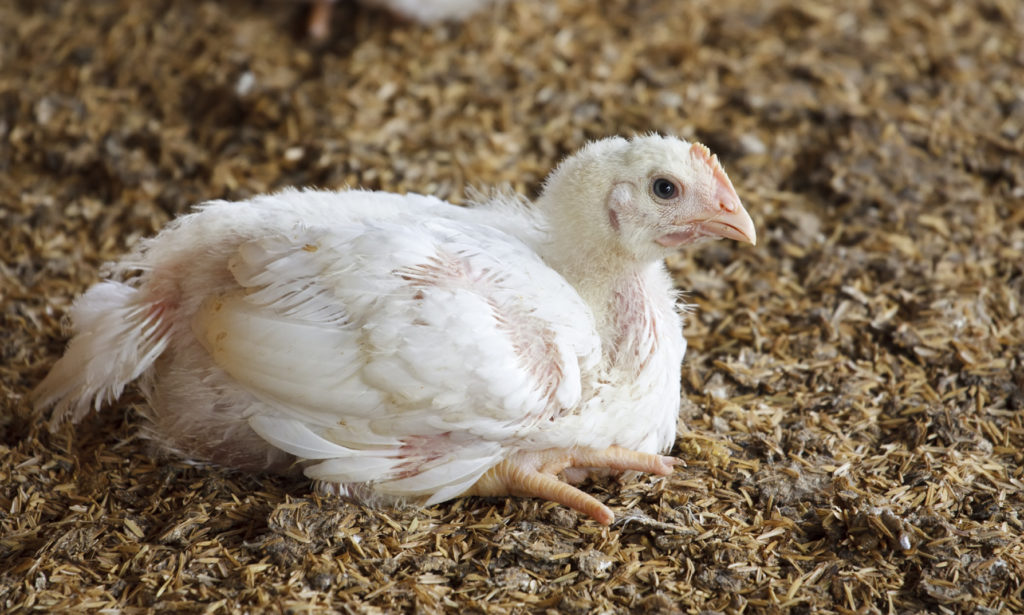PvdD vraagt in Brussel totaalverbod gif fipronil
De Europese Commissie moet het massaal in eieren aangetroffen gif fipronil geheel verbannen uit de landbouw in Europa. Anja Hazekamp, Europarlementariër namens de Partij voor de Dieren, heeft daartoe een verzoek gedaan in Brussel tijdens een debat over de fipronilcrisis.
Fipronil mag in de EU niet gebruikt worden op dieren in de voedselketen, maar is wel legaal verkrijgbaar. Het gif is nu nog toegelaten voor gebruik in de akkerbouw. “Fipronil is gewoon te koop in Europa en daardoor kan het gemakkelijk misbruikt worden voor verkeerde doeleinden. Met als gevolg vergiftigde eieren in de supermarkt en op ons bord. Een totaalverbod is veiliger voor de gezondheid van mens en dier en beter voor ons milieu,” zegt Hazekamp.

EU-regels grof geschonden
De Partij voor de Dieren wijst er verder op dat onverantwoord is omgegaan met het welzijn van de honderdduizenden met fipronil behandelde legkippen, die afgelopen maand zijn gedood in Nederland. Volgens Hazekamp waren de ruimingen in strijd met EU-regels ter bescherming van dieren en dus illegaal. “Deze kippen waren niet ziek en ze vormden geen gevaar voor de volksgezondheid. Hier is onnodig pijn, leed en letsel aan kippen toegebracht en dat is in strijd met Europese wetgeving. Ik wil weten hoe de Europese Commissie deze praktijken in de toekomst gaat voorkomen,” aldus Hazekamp.
De Partij voor de Dieren ziet in de fipronilcrisis het zoveelste bewijs dat Europese regels omtrent dierenwelzijn en voedselveiligheid niet worden nageleefd en dat controle veelal uitblijft. “Er is opnieuw aangetoond dat ons landbouwsysteem onhoudbaar is, maar ik verwacht dat de Europese Commissie nog vele schandalen nodig heeft om tot hetzelfde inzicht te komen,” aldus Anja Hazekamp.
Achtergrond
In juli werd het gif fipronil in de eieren in Nederland en België ontdekt en daarna bleken ook de eieren uit andere Europese landen, besmet te zijn. Ook sommige kalveren bleken in contact te zijn gebracht met een vergelijkbaar gif, amitraz genaamd. Vele eieren en eierproducten werden uit de supermarktschrappen gehaald omdat ze een gevaar vormen voor de volksgezondheid. Naar aanleiding van deze schandalen, riep de Partij voor de Dieren de Tweede Kamer terug van het zomerreces voor een debat. Het Nederlandse kabinet heeft inmiddels een onderzoek naar het eierschandaal ingesteld.
During a debate on the fipronil scandal, Party for the Animals MEP Anja Hazekamp has called on the European Commission in Brussels to ban the insecticide fipronil, found in vast quantities of eggs, completely from European agriculture.
In the EU, fipronil cannot be used on animals destined for human consumption, but it is legally available and authorised for use in arable farming. “Fipronil is freely available in Europe, and can therefore easily be used for inappropriate ends, leading to contaminated eggs ending up on supermarket shelves and our plates. A total ban will be safer for human and animal health and the environment,” said Hazekamp.

A chicken in the poultry industry
Crude violation of EU rules
In addition, the Party for the Animals points out that there has been insufficient regard for the welfare of the hundreds of thousands of laying hens treated with fipronil, which were slaughtered in the Netherlands last month. According to Hazekamp, these killings were in violation of EU rules on the protection of animals, and therefore illegal. “These chickens were neither ill nor a threat to public health. Pain, suffering and injury were unnecessarily inflicted on chickens, which is at odds with European legislation. I would like to know how the European Commission is planning to avoid such practices in the future.”
To the Party for the Animals, the fipronil scandal is further proof that European rules for animal welfare and food safety are not complied with, and that there is hardly any monitoring. According to Hazekamp, the scandal has once again demonstrated the unsustainability of the Dutch agricultural system, but she expects the European Commission to “need many more scandals before coming to the same conclusion”.
Background
In July of this year, eggs tested in Belgium and the Netherlands were found to contain levels of the toxic insecticide fipronil. Soon after, eggs in other European countries also turned out to be contaminated. In addition, it came to light that some calves had been in contact with a similar pesticide, called amitraz. Many eggs and egg products were removed from supermarket shelves because they presented a public health risk. Following these scandals, the Party for the Animals called for the Dutch Lower House to return early from Summer recess for a debate on the subject. The Dutch government has launched an enquiry into the egg scandal.